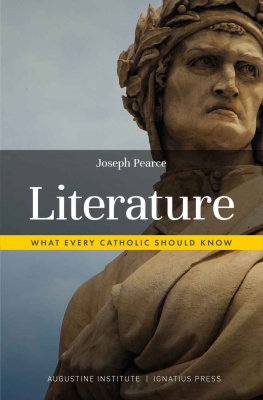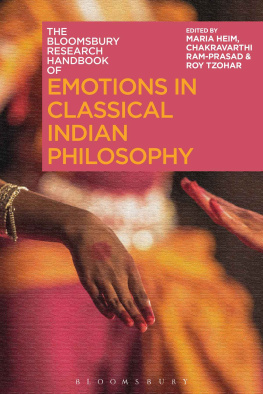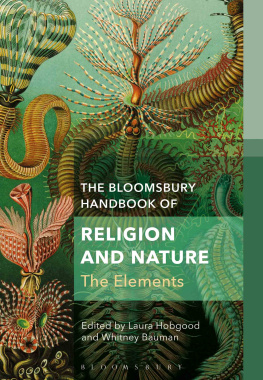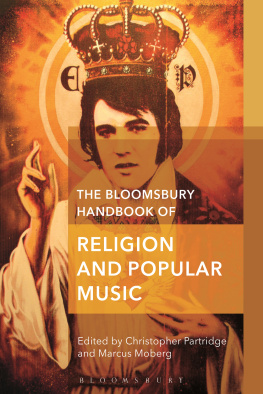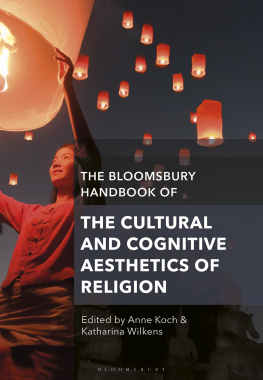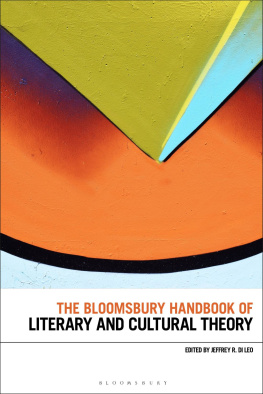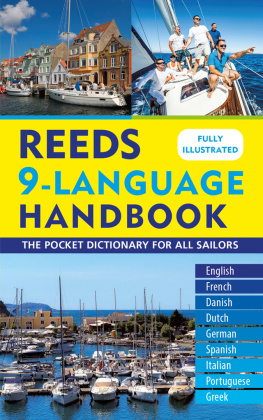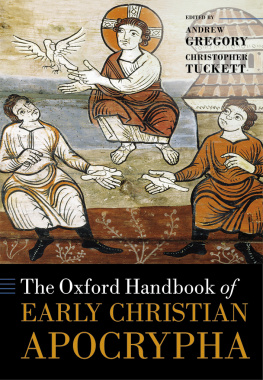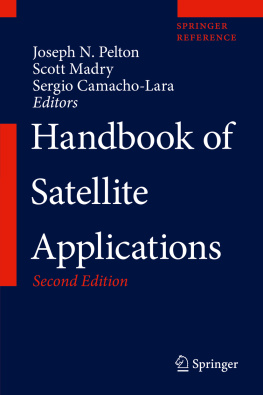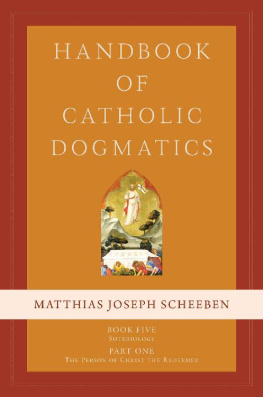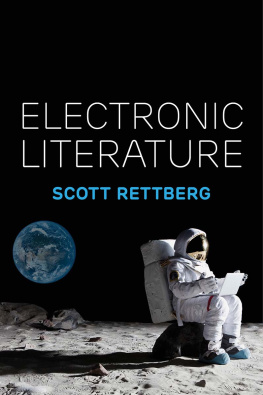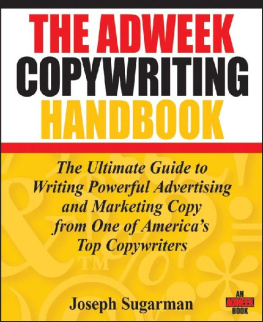Joseph Tabbi - The Bloomsbury Handbook of Electronic Literature
Here you can read online Joseph Tabbi - The Bloomsbury Handbook of Electronic Literature full text of the book (entire story) in english for free. Download pdf and epub, get meaning, cover and reviews about this ebook. publisher: Bloomsbury UK, genre: Art. Description of the work, (preface) as well as reviews are available. Best literature library LitArk.com created for fans of good reading and offers a wide selection of genres:
Romance novel
Science fiction
Adventure
Detective
Science
History
Home and family
Prose
Art
Politics
Computer
Non-fiction
Religion
Business
Children
Humor
Choose a favorite category and find really read worthwhile books. Enjoy immersion in the world of imagination, feel the emotions of the characters or learn something new for yourself, make an fascinating discovery.

- Book:The Bloomsbury Handbook of Electronic Literature
- Author:
- Publisher:Bloomsbury UK
- Genre:
- Rating:4 / 5
- Favourites:Add to favourites
- Your mark:
- 80
- 1
- 2
- 3
- 4
- 5
The Bloomsbury Handbook of Electronic Literature: summary, description and annotation
We offer to read an annotation, description, summary or preface (depends on what the author of the book "The Bloomsbury Handbook of Electronic Literature" wrote himself). If you haven't found the necessary information about the book — write in the comments, we will try to find it.
The Bloomsbury Handbook of Electronic Literature — read online for free the complete book (whole text) full work
Below is the text of the book, divided by pages. System saving the place of the last page read, allows you to conveniently read the book "The Bloomsbury Handbook of Electronic Literature" online for free, without having to search again every time where you left off. Put a bookmark, and you can go to the page where you finished reading at any time.
Font size:
Interval:
Bookmark:

THE BLOOMSBURY
HANDBOOK OF
ELECTRONIC LITERATURE
THE BLOOMSBURY
HANDBOOK OF
ELECTRONIC LITERATURE
Edited by Joseph Tabbi
Bloomsbury Academic
An imprint of Bloomsbury Publishing Plc

CONTENTS
Joseph Tabbi
Shelley Jackson
Steve Tomasula
Stuart Moulthrop
John Cayley
Davin Heckman and James OSullivan
Rob Wittig
Daniel Punday
David Ciccoricco
lvaro Seia
Manuel Portela
Mario Aquilina
Aden Evens
Nathan Jones
Allison M. Schifani
Brian Kim Stefans
Astrid Ensslin and Lyle Skains
Mehdy Sedaghat Payam
Luciana Gattass
Laura Shackelford
Florian Cramer
David S. Roh
Martin Paul Eve
Joseph Tabbi
Versions of the chapters by Florian Cramer (Post-Digital Writing), Stuart Moulthrop (Lift This End), and Brian Kim Stefans (Immanence, Inc) each appeared originally in the electronic book review. Cramers essay was also reprinted in his book Anti-Media: Ephemera on Speculative Arts. The first part of John Cayleys chapter is an edited version of Aurature at the End(s) of Electronic Literature, also published in the electronic book review. While copyright remains in each case with the authors, we acknowledge prior publication in accordance with the Creative Commons licensing agreement in each instance. The pages, and hands, reproduced in Shelley Jackson's chapter can be found in the Google Library Project. I am grateful to Jackson for making this a true Handbook.
My own chapter, Relocating the Literary, appeared in the journal CounterText; it is reproduced courtesy of the Edinburgh University Press. The screen shot from Today I Die is reproduced by Daniel Punday with the permission of the author, Daniel Benmergui. Steve Tomasulas chapter, Our Tools Make Us (and Our Literature) Post appeared in an earlier version in Transatlantica: revue dtudes Amricaines; the illustration is reproduced courtesy of the Blu-ray edition of 2001: A Space Odyssey. Screen captures by Davin Heckman and James OSullivan from degenerative and regenerative by Eugenio Tisselli and The Dead Tower by Andy Campbell and Mez Breeze are reproduced by permission of the authors. Screen captures by lvaro Seia from the videopoem Roda Lume Fogo (1986) are reproduced courtesy of E. M. de Melo e Castro and Po-ex.net. The photo of Silvestre Pestanas Computer Poetry (1983) was taken by lvaro Seia and is reproduced with permission of the author.
On a more personal note, Id like to acknowledge David Avitals email of November 2013 asking me to consider writing a small, polemical book situating an emergent e-lit practice specifically within the context of the (relatively recent) institutional emergence of the Digital Humanities. Given the number of bespoke digitally born works that are covered in the present volume, I am grateful to David for not insisting on something small. And I wish to thank, also, Brooks Sterritt and Robert Cashin Ryan for their ongoing editorial support, which was facilitated by research grants from the Department of English and the College of Liberal Arts and Sciences at the University of Illinois at Chicago.
Mario Aquilina is a lecturer in English at the University of Malta, where he teaches rhetoric, style, literary theory, and electronic literature. His monograph The Event of Style in Literature was published in 2014 and he co-edited a special issue of CounterText on electronic literature in 2016.
John Cayley is a writer, theorist, and pioneer-maker of language art in programmable media. Cayley is professor of literary arts at Brown University in the United States and directs a graduate program in digital language arts. He received the Marjorie C. Luesebrink Career Achievement Award from the Electronic Literature Organization in 2017; a volume of his selected essays, Grammalepsy, is forthcoming in 2018.
David Ciccoricco is in the Department of English and Linguistics at the University of Otago in Dunedin, New Zealand. He is the author of Reading Network Fiction (2007), a book about digital fiction before and after the Web, and Refiguring Minds in Narrative Media (2015), which brings cognitive narrative theory to the analysis of novels, digital narratives, and story-driven videogames.
Florian Cramer is a writer, photographer, filmmaker and theorist. He is a research professor in new media at Hogeschool Rotterdam in Netherlands, where he serves as the director of Creating 010, a center focusing on two areas of research: communication in the digital age and cultural diversity. He is also a part-time programmer at WORM, the Rotterdam-based Institute of Avantgardistic Recreation.
Astrid Ensslin is professor of media and digital communication at the University of Alberta in Canada, where she teaches and researches digital fiction, games, cyberliterature, and digital humanities project management. Her main publications are Literary Gaming (2014), Analyzing Digital Fiction (co-edited with Alice Bell and Hans Kristian Rustad, 2013), The Language of Gaming (2012), and Canonizing Hypertext (2007).
Martin Paul Eve is professor of literature, technology, and publishing at Birkbeck, University of London. He holds a PhD from the University of Sussex and is the author of four books.
Aden Evens is associate professor of English at Dartmouth College. He pursues research and teaching across disciplines, from philosophy, digital studies, mathematics, music, and sound. Evens anticipates that any year now electronic literature will become mainstream, and then wont he look smart!
Luciana Gattass holds a magna cum laude BA in film studies from Columbia University (1999), and both an MA and a PhD in literary theory from the Pontifical Catholic University of Rio de Janeiro (2007 and 2011). In 2010 she was a visiting doctoral fellow at Brown University researching digital aesthetics. Her PhD dissertation explored the theory and aesthetics of electronic literature and art and earned her a postdoctoral fellowship at the University of Bergen in 2012, where she curated the Brazilian Electronic Literature Collection for the ELMCIP (Electronic Literature as a Model of Creativity and Innovation in Practice) Knowledge Base. Currently she serves as an honorary assistant professor at the University of Hong Kong.
Davin Heckman is the author of A Small World: Smart Houses and the Dream of the Perfect Day (2008). He is supervising editor of the Electronic Literature Directory (directory.eliterature.org), contributing editor of ebr (www.electronicbookreview.com), and professor of mass communication at Winona State University in the United States. During the 20112012 academic year, Davin was a Fulbright Scholar in Digital Culture at the University of Bergen.
Shelley Jackson is the author of the forthcoming novel Riddance, Half Life, The Melancholy of Anatomy, the hypertexts Patchwork Girl and My Body, and several childrens books, the most recent of which is Mimis Dada Catifesto. Her work has appeared in many journals including Conjunctions, Paris Review, McSweeneys, and Cabinet Magazine. The recipient of a Howard Foundation grant, a Pushcart Prize, and the 2006 James Tiptree Jr Award, Shelley is also known for her projects SNOW and SKIN, a story published in tattoos on 2,095 volunteers, one word at a time.
Font size:
Interval:
Bookmark:
Similar books «The Bloomsbury Handbook of Electronic Literature»
Look at similar books to The Bloomsbury Handbook of Electronic Literature. We have selected literature similar in name and meaning in the hope of providing readers with more options to find new, interesting, not yet read works.
Discussion, reviews of the book The Bloomsbury Handbook of Electronic Literature and just readers' own opinions. Leave your comments, write what you think about the work, its meaning or the main characters. Specify what exactly you liked and what you didn't like, and why you think so.

